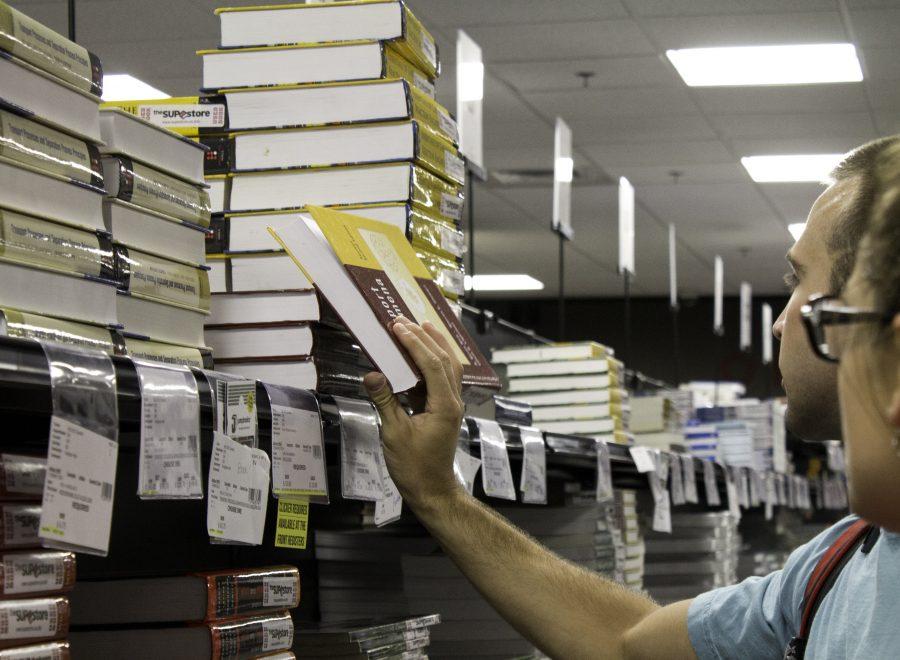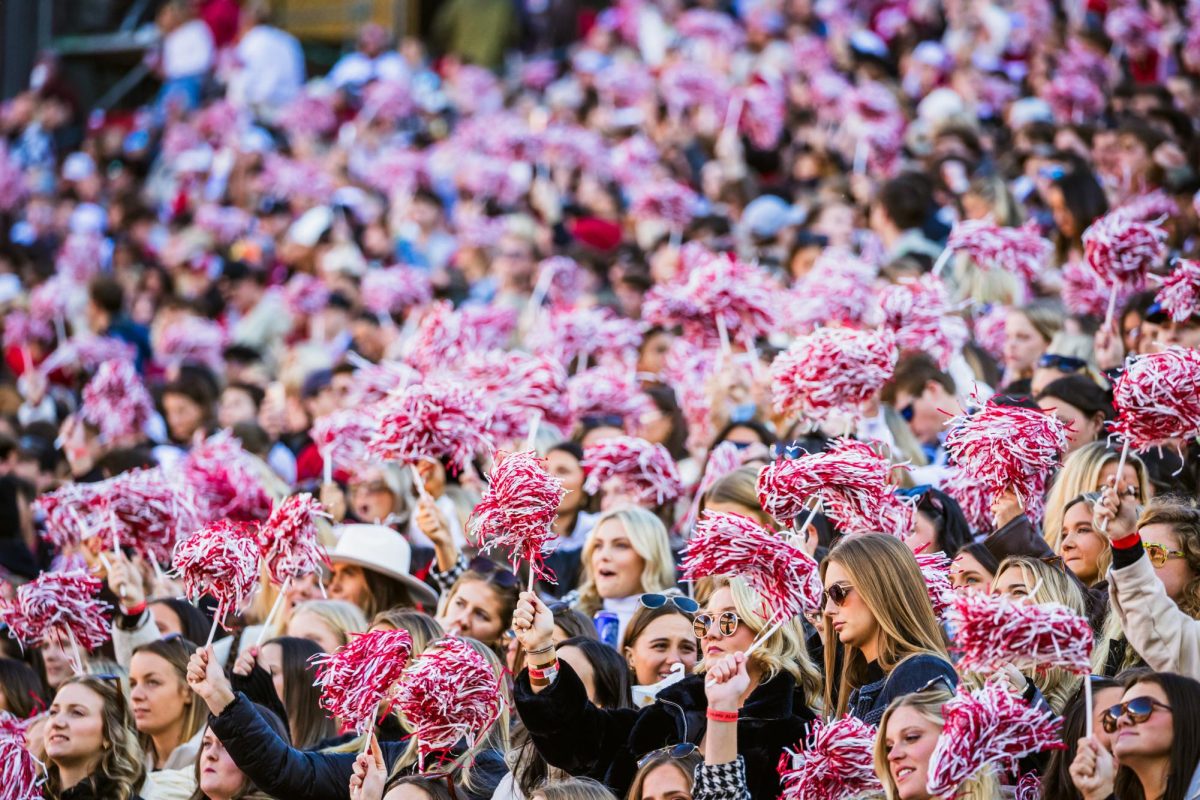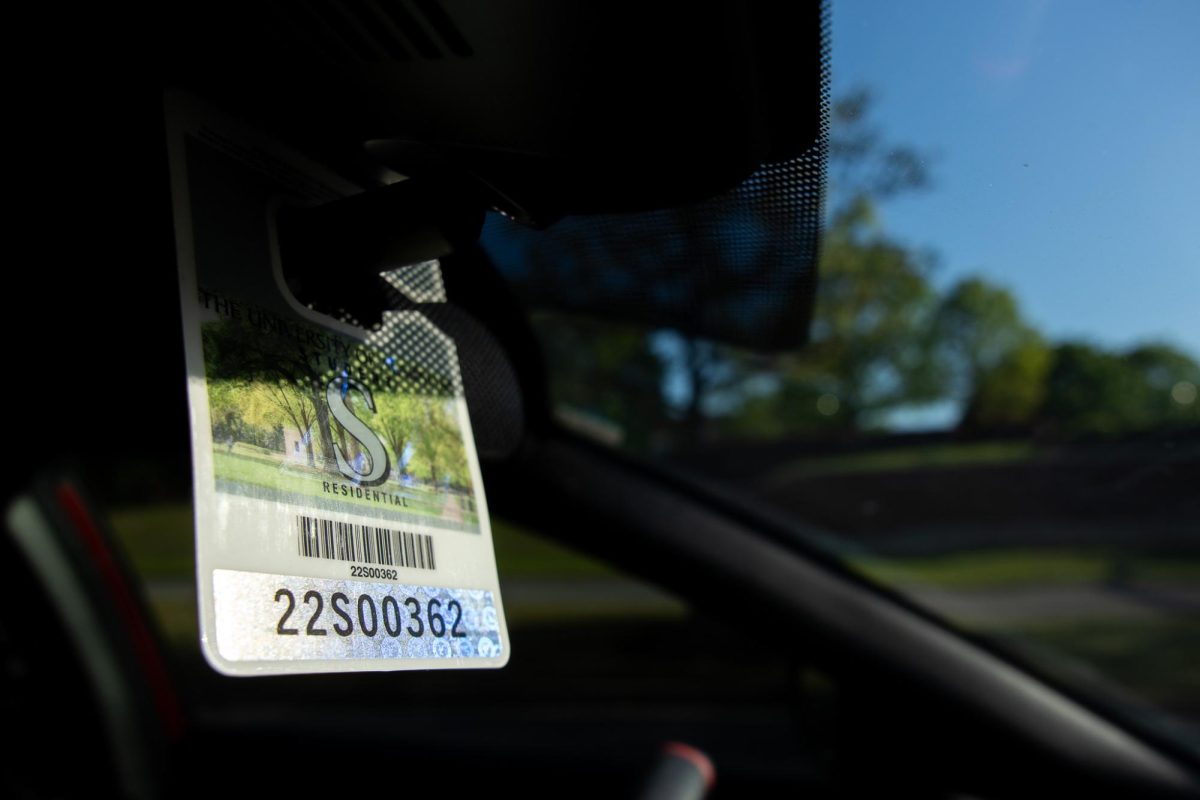The transition from high school to college is difficult enough, but the workload tends to be a struggle for both freshmen and upperclassmen alike. Typical challenges can be changing your study habits and the amount of usage from your textbook.
Richard Livingston, assistant director for the Center for Academic Success, holds a workshop every year to help students make that adjustment.
“Students learn how reading college textbooks is different from what they were used to in high school,” Livingston said. “Making appropriate use of textbooks in college is often more important than it was in high school.”
Many students learn that just because you have the textbook doesn’t mean you will always use it, though there are many exceptions.
Scott Parrott, assistant professor of journalism, said he doesn’t require students to buy their textbook unless he’s going to use it often. He said he tries to give students advice when he notices they aren’t getting the most out of assigned readings.
“Actually doing the reading and sticking to it can be a challenge for students coming in from high school,” Parrott said. “Many students procrastinate and put it off. I try to tell students to do their work gradually by day. It won’t be as stressful, and it’ll actually benefit you more because you’re taking it day by day and reading snippets instead of cramming it all in one night.”
Teresa Cribelli, assistant professor of history, is another professor who said she wants students to get the most out of their textbooks.
“There’s a big difference between high school and college,” Cribelli said. “High school is typically a classroom setting and the textbooks provide you with narrative. In college, at least for my class, textbooks provide different prospectives and students now need to read them and come up with their own interpretations. I provide the catalyst, but they do the reading and obtaining the information.”
Parrott, who now teaches graduate students, said he keeps his textbooks from his own time in college.
“Sometimes you forget where you come from,” Parrott said. “I go back and read my own textbooks and it’s really helpful. When you get into graduate school, there is more reading involved and there is so much information out there, but the more you know the better prepared you are. Reading, especially for journalism students, is extremely important.”
Cribelli said one of the hardest things for a student can be taking notes from their readings.
“I try to convey that you’re reading for content, which means you don’t have to know every word, but the most important information,” Cribelli said. “It’s a skill of being able to gain information in an efficient and productive way. So I tell my freshmen, bring your notes, and I’ll tell you if you’re capturing what you need to. The skill isn’t always obvious.”
As the goal of college is to gain information and use it in the future, learning how to use textbooks can be essential.
“It’s about teaching students to analyze information by themselves, and to make correlations between readings,” Cribelli said. “It’s about what you do with this material. To know how to do research efficiently, how to use it and to be able to write in an effective way.”









